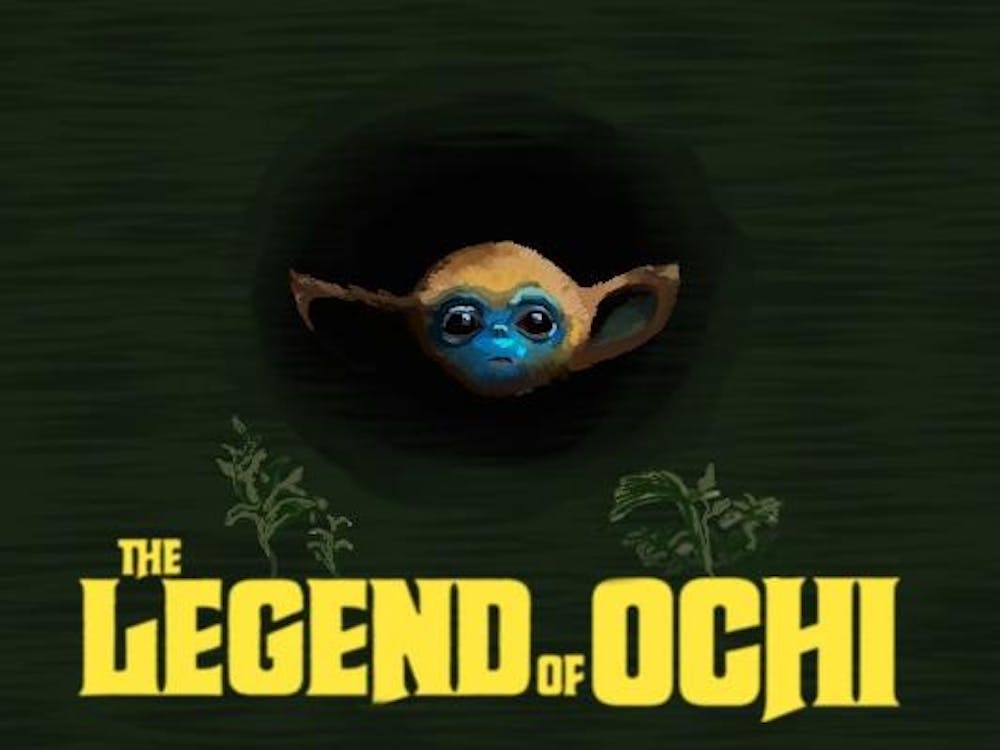Last year’s “Lice” EP, a 15-minute collaboration project between Aesop Rock and Homeboy Sandman, was a sign of things to come. Since then these two New York rappers have been busy, each releasing a new album this year to positive acclaim. Much like in 2015, they’re closing out the year with another short installment of their collaborative effort, “Lice Two: Still Buggin’.”
The 16-minute EP features production from five artists, including Rock himself. Despite this variance, the album adopts and refines the style Rock and Sandman carved out for themselves on their first project, spitting playful bars and self-deprecative braggadocio, which take reflection to fully grasp, all over quirky beats.
“Lice Two” opens the same way “Lice” did — with a sample. This one features a news reporter saying, “A new report out found that lice is actually changing, and mutating, becoming immune to standard treatments,” before transitioning into the song “Zilch.” These samples add to the character profile and mystique of Rock and Sandman’s “Lice” persona — they're evolving quicker than efforts to silence them.
On “Zilch,” Sandman and Rock rap chaotically over a beat produced by Dan Hayden. Sandman’s opening verse is notable for its depiction of “a village on a hill where everybody got unmitigated gall / But no refrigerators filled and every father there got pockets / stocked with zilch.” Rock comes in with a verse full of obscure pop culture references ranging from myna birds to Ray Bradbury’s “The Veldt,” even depicting “obscene evil” wearing Steve Zissou brand beanies. It’s clear from the jump these two will be bringing the full force of their individual abilities into this effort.
Rock delivers one of his more pointed lines on the self-produced track, “Oatmeal Cookies,” rapping, “Hated myself since before it was cool.” This aside, when understood in the context of Rock’s career, is a biting criticism of a culture that fetishizes and lionizes depression, a personal struggle he has been honest about in his previous music. In fact, there is no shortage of pointed statements from Rock and Sandman in this EP. Rock pledges support for anything “misshapen over cookie cut,” rather than “a media that fetishize the wealthy,” while Sandman juxtaposes “20 paces and a duel” with “40 acres and a mule.”
While heavy-handed, these lines are merely interspersed between softer, light-hearted lines, which buoy the project. Lines like Rock’s, “I walk like a D-Day sim / You walk like a deveined shrimp, simp,” or Sandman’s, “I want a dimepiece that smells as good as McDonald’s fry / grease and isn't always criticizing my beats,” are as critical to the “Lice” ethos as any other lyric.
Both rappers err towards a heavier, more self-important lyricism on their solo material, but their “Lice” outfit allows them a space to release music without the burdensome, paranoid need to immortalize their respective legacies. Rock’s latest solo project, “The Impossible Kid,” while fantastic, opened up about Rock’s career and psychological insecurities. Sandman has perfected the art of didactic rap in his solo efforts, teaching and preaching as well as he rides a beat, if not better.
“Lice” is freer. Both artists take on heady topics, but with far more frivolity than fans of their work are accustomed to. “Lice 2: Still Buggin’” is carefree art rap, awe inspiring in its ability to not take itself seriously, while still being musically impressive.







